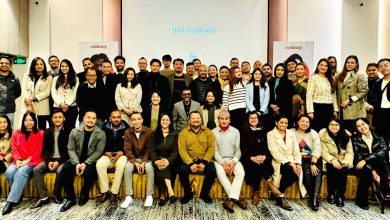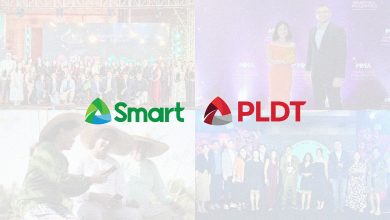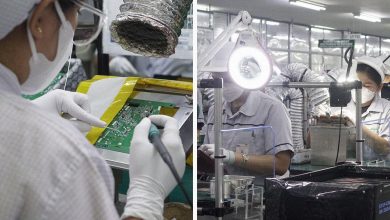What happens to a carton of milk or juice after being used? Where does it end up, what’s done to it, and how does it get there?
These are the questions that Tetra Pak Philippines aims to answer and provide solutions for by pioneering a Used Beverage Carton (UBC) Recycling initiative in Boracay, the first tourist island in the Philippines that has undergone major environmental rehabilitation (and is currently still in progress). The timing couldn’t be more apt, and some would say perhaps even long due, as the pressure intensifies on large institutions and manufacturing corporations to address the effects of climate change and provide solutions to mitigate the increasing problem that will affect future generations. As the world’s leading food processing and packaging solutions company, operating in more than 160 countries with over 25,000 employees worldwide, the Swedish-born brand is among the world’s largest manufacturers of single-use products and is also among those at the forefront to shift its production process from the traditional linear with a single bottomline towards a more sustainable value chain process that supports the circular economy.

A Proactive and Pioneering Approach
By launching this initiative in the island, Tetra Pak is taking a proactive and pioneering approach to make sure cartons are collected, sorted and recycled so that the Used Beverage Cartons (UBCs) can continue delivering value. Tetra Pak intends to reduce waste, keep materials in use, and regenerate natural systems by adhering to and promoting the principles of the circular economy. As one of the world’s largest packaging manufacturers, the company strives to take responsibility and develop solutions that will reduce the environmental footprint of products and services across their life cycle, from raw materials to post-consumer waste.
Each Tetra Pak carton is comprised of six layers, made up of 75% paper and 25% polyaluminum, which can all be recycled and regenerated into new products, such as paper and roof tiles and boards. Through upcycling workshops and training seminars, the local community of Boracay will be trained on how to creatively reuse these materials and generate their own income with a more sustainable livelihood through the circular economy. Drop-off bins and hubs should be available and accessible in major commercial centers throughout the island, including shopping areas and hotels and resorts, so that UBCs can be properly disposed of at the consumer level. A more proactive and assertive approach is also necessary in disseminating knowledge on how to properly dispose a Used Beverage Carton (Three easy steps: Rinse, Flip and Flatten!) and in boosting awareness on the benefits of reusing post-consumer materials at the community level in Boracay.
According to Michael Wu, Managing Director of Tetra Pak Malaysia, Singapore, Philippines and Indonesia, “Sustainability is our key priority. By continuously initiating recycling value chain processes and recognizing the importance of our relationships with our partners — the collectors, recyclers, customers, government, communities, and other stakeholders — we aim to drive low carbon circular economy across Southeast Asia, and that includes the island of Boracay and the whole of Philippines. Through this movement, we stand by our commitment to protect food, people, and futures.”
The Value Chain Process
The project is supported by the Local Government Units and other entities sharing the same vision. Maximizing its Materials Recovery Facility, the Solid Waste Management unit will ensure that UBCs are sorted properly and be included under recyclables. With the primary objective of preventing UBCs from going into landfills, these are to be collected to meet the volume requirements of junk shops.
Upon the collection, the gathered beverage cartons will be transferred to paper waste junk shops, who then bales the UBCs and ships these to Carpel Environment Corporation. CARPEL then consolidates the UBC waste products and ships it to the Rural Industrial Corporation (RIC), who guarantees its successful recycling and that HORECA in Boracay will have access to buy its recycled end-products.
“Together with Tetra Pak, we are happy to bring this initiative in Boracay. If anything, there should be more campaigns and legislations out there that push our beautiful island to be a more sustainable destination. We want to see our place do well by doing good, and this starts with the community taking responsibility for its actions. How are they going to do this? By being the first step of the cycle through collection of their own Used Beverage Cartons and making sure that it goes through the whole recycling chain process,” says Hon. Frolibar Bautista, acting Mayor of Malay, Aklan.
Protecting Boracay for Future Generations
Hailed as one of the world’s most beautiful and pristine beach islands, with its iconic powdery sand and tropical landscape, Boracay is without a doubt a natural treasure that’s worth fighting for. In light of World Health Environment Day, Tetra Pak is working closely with Boracay Foundation, Inc. as well as the Rural Industrial Corporation (RIC), Carpel Environment Corporation, LGUs, and members of the HORECA sector, in launching this recycling initiative.
According to Pia Miraflores, Executive Director of Boracay Foundation, Inc., “There are many key factors the we can identify to help us promote proper recycling. From influencing our friends, colleagues, to extending this to other organizations such as the HORECA sector. We believe that through this promotion of UBC recycling, it will encourage recycling practices by the local people, in turn, boosting our tourism economy in a sustainable manner. We look forward to how it will affect the environmental health of the island.”
Learn more about Tetra Pak’s initiatives and efforts in providing solutions for a more sustainable future via tetrapak.com.










